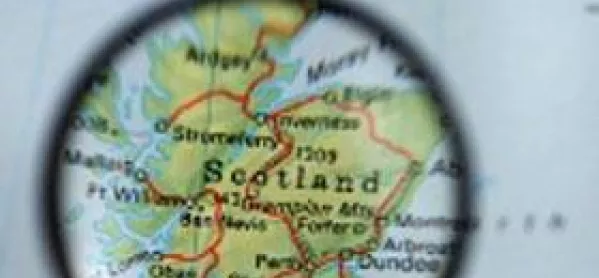Must do better
The senior chief inspector of Scottish education has issued a wake-up call to schools and colleges
Share
Must do better
https://www.tes.com/magazine/archive/must-do-better

The economic crunch spells “crunch time” for Scottish education, the head of the inspectorate warned this week.
While the system was still strong, Graham Donaldson, the senior chief inspector, issued a wake-up call for schools and colleges on the eve of the publication of HMIE’s second “state of the nation” education report.
The global recession and the fact that other countries were improving at a faster rate, he said, made it more imperative than ever before that Scottish education step up a gear - and quickly.
In the three years since the publication of the first Improving Scottish Education report, the same strengths remain while there has been little significant improvement in areas of weakness - although schools have laid the foundation for progress.
Mr Donaldson told The TESS that the report, which is launched today in Glasgow, should be seen as encouraging - “not because of where we are now, but because of what it tells us about where we can get to”.
The evidence from inspection is that Scotland has a highly professional teaching force which is largely well-led, relationships are positive in most schools and there is a growing culture of self-evaluation which is recognised as world-leading. HMIE believes these are strengths on which schools can build.
But, overall, today’s report does not point to any sign of major improvements in pupil performance, compared with the previous ISE report for 2002-05.
Mr Donaldson made clear he saw the main driver of improvement as A Curriculum for Excellence, which he described as being at “a watershed moment”.
He added: “We are still in a position where there are too many interpretations of what A Curriculum for Excellence is about. For me, it is about establishing a universally high standard of general education for all children.”
In particular, Mr Donaldson said, there were still huge misunderstandings about what the curricular reforms were intended to achieve in the first three years of secondary education. The S1-3 stage should not be seen as a “common course”. The main aim of the curriculum was to get all pupils to the new Level 3 by S3, which would bring about significant improvements.
Education Secretary Fiona Hyslop said steady improvement was “not good enough”. The challenge was to ensure that the high quality education found in many classrooms was delivered to all pupils.
Among the main themes of the report are that broader achievements and attainment are not alternatives which can be traded against each other; a lack of progress from middle primary to middle secondary, although improvements in pre-school and early primary are making an impact; and a reluctance to tackle “demanding areas of learning”, such as science and modern languages.
State of the education nation, pages 4 and 5
Leader, page 22.
You've reached your limit of free articles this month. Subscribe for £1 per month for three months and get: